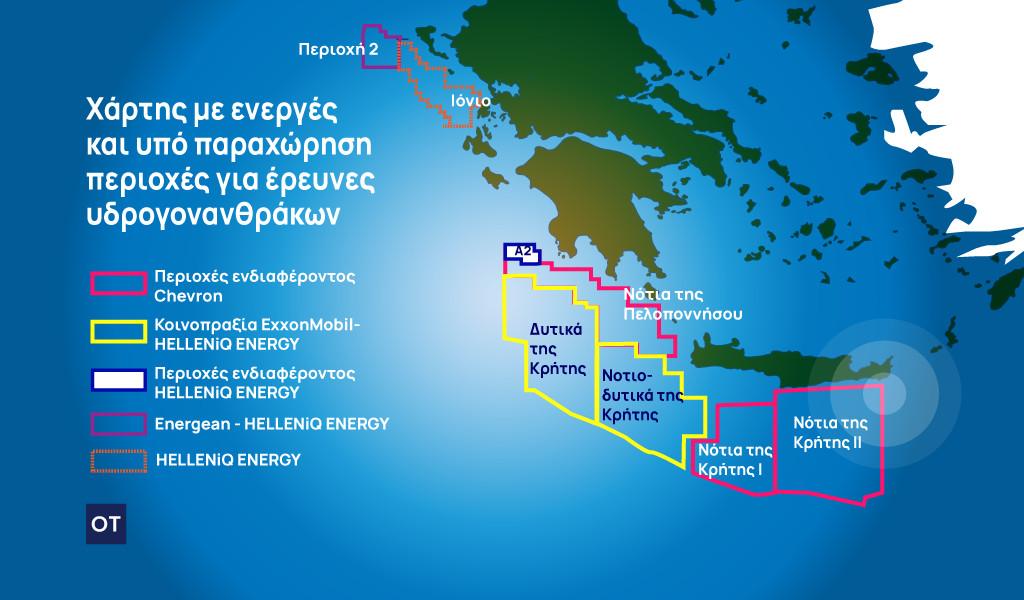Greek-owned shipping companies lead the course in global shipping markets for over half a century. It is in this position after attaining a continuous growth path during the 20th century. It is the only maritime power with such an impetus growth path. The examination of the corresponding path of the main maritime powers of the world and the observed changes in the leading positions of the world ranking in the shipping industry, confirms this ascertainment. Taking this into account, one could contend that in the most global sector of economic activity, that of shipping, where the intense and continuous fluctuations are the norm, the only constant, was and still is the strengthening of Greek-owned shipping.
In this path, Greek-owned shipping companies have formed a dominant business model, whose main traits are speed and flexibility in the decision-making process as well as the exceptional ability of the companies to adjust to the changing conditions of the shipping business environment. External adaptation and internal integration form the diptych that describes the path of the typical Greek shipping company and model on which it is based.
The hands-on model
The typical Greek shipping company, active in the global shipping markets, operates based on the family culture, where the founder and strategic leader is at the epicenter. This business model is characterized by the so-called hands-on management style, is a key element of the competitive advantage of the companies to date, considering that those who implement it, remain active in the strategic and tactical management of the firm, controlling every aspect of their operation. The hands-on management style, amongst else, facilitates the appearance of a structural characteristic of Greek family shipping companies related to the tendency of fragmentation, i.e. the tendency of the youngest members of the family to start separate business activities. At the same time, it allows the direct intervention in the operations of the company leveling the cost and the quality of the services provided by the company, thus strengthening its competitiveness. This allows companies to base their competitive advantage on their ability to offer cost effective and quality based technical management of ships. It is this element, amongst else, that leads to limited penetration of independent ship management companies to the Greek-owned shipping.
This model that contributed to the success of Greek-owned shipping companies is present to date. This success owes much to the fact that the strategic leaders of the shipping firms are at the core of this model supported by employees with similar philosophy and characteristics compatible to those of the model. However, there factors gradually lead to the differentiation and adaptation of the model. These factors stem from the shipping business environment and the challenges shipping companies need to address, as well as from the active participation of the youngest generation of shipowners to the management of the firms and the undertaking of leadership positions in them.
The business environment and competition in world shipping
A series of changes shape the new shipping business environment which becomes heavier regulated setting new limits to companies, thus leading to increased standardization levels in their operations. This fact possibly will favor the approach independent ship management companies adopt, which can be considered less personalized and more focused on large scale economics. Recent strategic decisions of shipping companies internationally, as is the assignment of technical management to independent ship management firms, are indicative of these trends. In this business environment the importance of scale is set in different terms. At the same time, while the trend to consolidation in the commercial operation of ships through the continuous increase and development of pools sets limits because of intense competition, it provides opportunities to specific categories of shipping companies choosing the path of cooperation to compete.
In parallel, factors such as intense competition, uncertainty on the fuel of the future, which makes shipowners hesitant on newbuilding projects, companies’ pursuit for improvements in operational efficiency, charterers’ and other business partners requests especially on environmental performance, shape an even stricter operating framework for shipping companies. Issues related to the environment, the society, and the governance (ESG) are on the daily agenda. In this context, the need to pursue objectives related to decarbonization, digitalization, diversity, equity, inclusiveness and wellbeing of employees, appear to be imperative.
The development of management and self-assessment systems that have on their attention all these notions, as well as the pursuit for compliance and certification with specific standards, turn the interest to the internal environment of shipping companies for the assessment of the way they meet the expectations of business and social partners. They also create the need for employees that have the knowledge and skills to respond to the above-mentioned requirements and to give the needed attention to the notions of agility and resilience, i.e., the so-called internal integration and external adaptation of Greek-owned shipping companies, characteristics that are found at the core of their competitive advantage.
The youngest generation and their business approach
All the above developments take place the same time when in many shipping companies the youngest generation, undertake leading roles in companies or create their own business entities. Compared to the previous generation, they have limited knowledge and experience on working and leaving conditions onboard ships. They also have different academic background, different rational approach on the analysis of business challenges and opportunities, different philosophy and different priorities. In this transition in companies’ leadership to the youngest shipowners, a different business approach prevails. The hands-on approach does not appear as attractive to them because of their characteristics and mentality, as well as of their limited interaction and communication with employees whose characteristics make them compatible to this approach. In this context, several trends that contribute to the transition of shipping companies to a business model that suits the approach and culture of the youngest generation of shipowners are noted. As they undertake the leadership of the businesses, these trends are expected to prevail. Among the trends have been implemented for a while, along with others that have made their appearance lately are:
⦁ Emphasis on commercial aspects of the business and participation to forms of cooperation such as pools. For the youngest generation the interest for the technical management and the operation of the ships is not as attractive. This fact, as previously discussed, is related to their education and experiences. By no means this implies that the technical management of the ships does not form a high priority of their companies, though.
⦁ Investments in activities that are not directly related to shipping and are on the forefront of innovation. The utilization of technological innovation for the development of applications and tools relevant to digitalization and decarbonization fall in this category.
⦁ Emphasis on horizontal organizational structures that facilitate communication, organizational flexibility, creation and diffusion of knowledge and cooperation. In this direction, organizational structures based on teams are adopted and implemented by an increasing number of shipping companies
⦁ Adoption of corporate forms and characteristics that favor transparency and extroversion. In this category fall for example the utilization of the opportunities offered by international and national capital markets for raising capital for investments.
⦁ Investment in human capital for the successful response to the requirements of the business environment and the adaptation of businesses’ operation and culture.
⦁ Creation of Human Resource Management departments supporting recruitment and employee selection based on the skills and competencies of candidates. In parallel, companies choose to cooperate with universities which provide the needed talents.
⦁ Recruitment of c-level employees from the international market.
⦁ Emphasis on the selection and retention of talent able to join the organizational culture and to reproduce values the youngest shiponwers want to be dominant in their companies. These talents are found in employees able to communicate effectively with the youngest generation due to their common perception and code of communication and their specialized knowledge and skills that can support the transition of firms to the new shipping business environment.
The above trends lead to the formation of the business model shaped by the youngest generation of shipowners and create a favorable environment for the sustainable competitiveness of Greek-owned companies. This model differs from the traditional one through the expansion to fields that until recently were not considered as important, while at the same time is enriched with the adoption and implementation of basic traits of the traditional model, as is the case of the counter-cyclical investments or divestments, or the emphasis on the development of know-how for the in house technical management of ships.
Concluding, it could be said that the business model of the youngest generation of shipowners is based on business model innovations, which are enriched with traits which reassure the continuation of the evolution of Greek-owned shipping.
Ioannis Theotokas
Professor, University of Piraeus
Director of MSc “Marine Science and Technology Management”









![Χρυσές λίρες: Πουλάνε μαζικά οι Έλληνες το εξάμηνο του 2025 [γράφημα]](https://www.ot.gr/wp-content/uploads/2025/07/photo_2025-07-04_13-01-06-300x300.jpg)


















![Χρυσές λίρες: Πουλάνε μαζικά οι Έλληνες το εξάμηνο του 2025 [γράφημα]](https://www.ot.gr/wp-content/uploads/2025/07/photo_2025-07-04_13-01-06.jpg)










